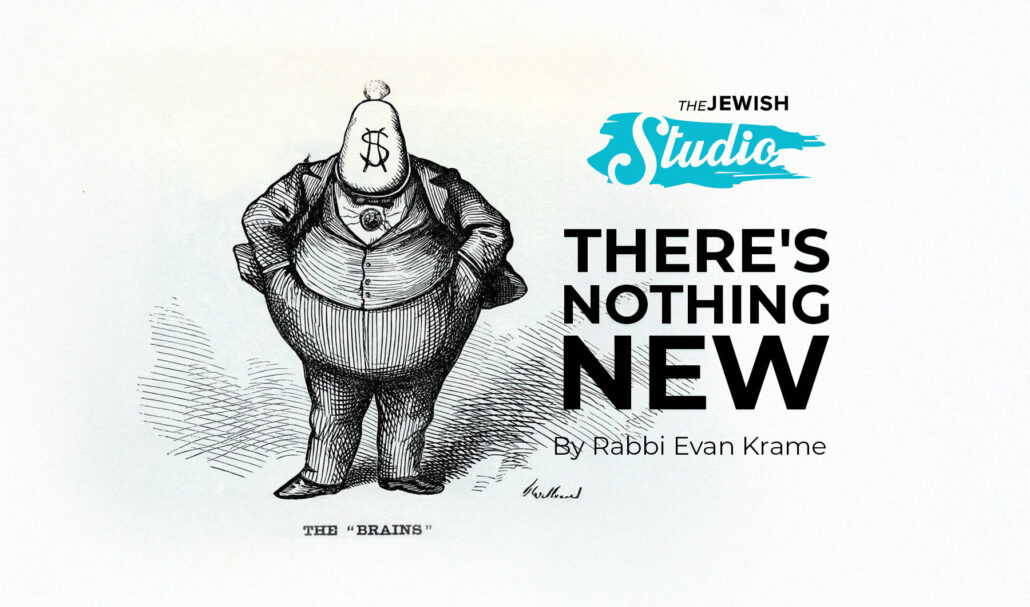Presidential scandal and corruption is nothing new. Take President Andrew Jackson, who was an innovator in the abuse of power. He ignored Supreme Court rulings, oversaw the Indian Removal Act—an abuse of authority and a moral atrocity—and strong-armed Congress whenever it suited him. Today, when you hear cable news hosts breathlessly declare that some political drama is “unprecedented,” remember that “unprecedented” often means “I haven’t read a history book lately.” Or as Ecclesiastes might say, “there’s nothing new under the sun.”
In truth, most alleged imprudent leaders are simply revisiting old patterns in new packaging.
The Torah knew this long before the pundits. Our sacred stories show that leaders often repeat the same dishonest, hostile, self-serving behaviors as those who came before them. In Parshat Toldot, just as in Vayera, we meet Avimelech, king of Gerar—a man whose leadership philosophy seems to be: If you can’t be righteous, at least be consistent. Twice he proves himself duplicitous, self-interested, and corrupt.
First, with Abraham: Abraham, seeking refuge under Avimelech’s protection, fears the king will kill him and seize his beautiful wife Sarah. Avraham claims she is his sister. Avimelech sends messengers to take Sarah. Before he can accost her, Avimelech is warned in a dream not to touch Sarah.
Then, a generation later, Isaac takes refuge in Gerar during a famine. Knowing Avimelech’s reputation, Isaac uses the same ruse—Rebecca is introduced as his sister, not his wife. And once again, the king lives down to expectations, prying into Isaac’s personal life, asserting dominance, and, once the truth emerges, expelling Isaac out of fear and political convenience.
Abimelech’s offenses are small compared to the gross misconduct of modern rulers, but his character shapes his legacy. The Torah reveals that, left unchecked, systems begin to normalize corruption: abuses become tradition, dishonesty becomes habit, and “that’s just how things are done” becomes the motto of the morally complacent. Unless confronted, corruption metastasizes.
And what is true in Torah is true in America. Our political history is a tapestry of righteous individuals stitched alongside the occasional despot, crook, or constitutional contortionist. The system tolerates corruption—but only to a point. Eventually, the ship of state leans back toward balance.
Look at our presidential lineup: Andrew Johnson’s obstructionism, Grant’s corrupt appointees, Harding’s Teapot Dome debacle, Nixon’s creative interpretations of executive privilege—all mirror the same failures: unaccountable power, cronyism, secrecy, and a systemic tolerance of misconduct.
As Ecclesiastes said, Ein chadash tachat hashemesh—there is nothing new under the sun.
But if corruption returns in every generation, so too do justice, decency, and democratic resilience. The better angels of our nature have a way of returning—sometimes limping, sometimes late, but always insisting that freedom, integrity, and accountability must rise again.
Rabbi Evan J. Krame
If this reflection resonates with you, consider sharing it on social media—or simply take a moment to reflect on how you can create a better community.





